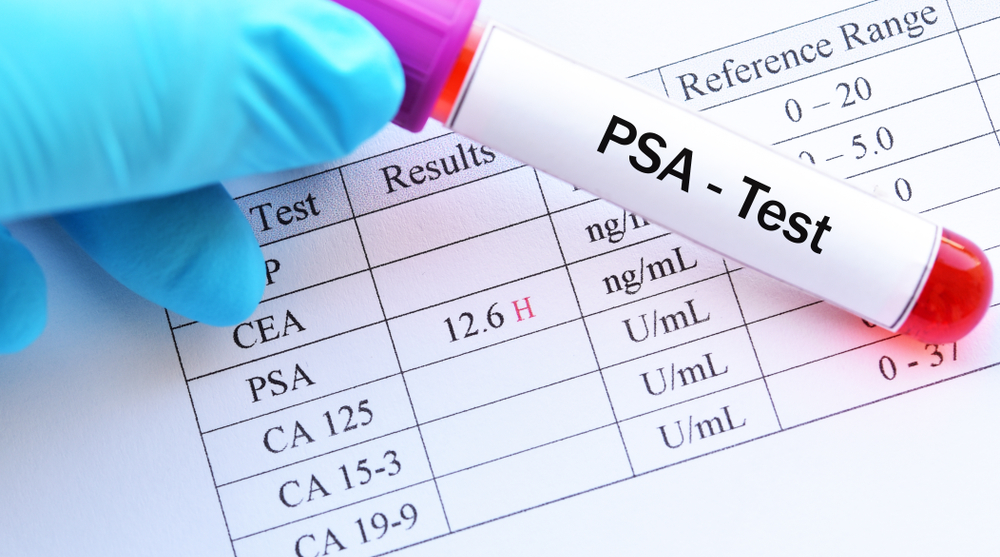
The Prostate-Specific Antigen (PSA) Test is a preliminary screening that can reveal the chances of a patient having or developing prostate cancer. It is not a test used to diagnose prostate cancer but may be conducted to confirm a diagnosis, to determine whether further testing is needed, or to monitor if prostate cancer has returned.
The American Urological Association recommends (after discussing with your doctor) a routine PSA test for men:
- Between the ages of 40 to 54 with a high risk of prostate cancer
- Between the ages of 55 to 69
What is Prostate Specific Antigen?
Prostate-specific antigen is a protein found in the epithelial cells of the prostate gland. It is produced for ejaculatory fluid (semen) to make thickened semen runnier, allowing sperm to swim more easily.
PSA is produced by both normal and malignant prostate cells and the amount of PSA can be measured in the bloodstream. PSA levels can provide information regarding prostate health.
What Is PSA Testing?
PSA testing is a blood test that measures the amount of PSA found in the blood. Normal PSA levels for an average man increase with age, prostate size, and in the presence of prostate conditions such as benign prostatic hyperplasia (BPH), prostatitis, and prostate cancer.
For men over 40 or who have a higher risk of prostate cancer, your doctor may discuss a PSA test for prostate cancer screening or if you’re experiencing the following symptoms:
- Frequent urge to urinate
- Frequent urination at night
- A weak or slow urine stream
- A feeling that the bladder is not completely empty after urinating
- Difficulty starting urination
- A urine stream that starts and stops
- A continued and uncontrolled dribble of urine
- Painful or burning sensation with urination
- Blood in urine or semen
- Pain or discomfort in the lower back, hips, and pelvic area
- Painful ejaculation
Understanding PSA Levels
Small quantities of PSA are found in men with healthy prostates, with normal levels ranging from 0 to 4 nanograms per milliliter (ng/ml)2. However, as we mentioned, normal levels increase with age:
Normal levels of PSA according to age range:
- 40 to 49: 0 – 2.5 ng/ml2
- 50 to 59: 0 – 3.5 ng/ml2
- 60 to 69: 0 – 4.5 ng/ml2
- 70+: 0 – 6.5 ng/ml 2
As a general guideline, prostate levels:
- Between 0-2.5 ng/ml – Low chance of prostate cancer and no further testing is needed.
- Between 2.5-4.0 ng/ml – Considered normal. If no risk factors are present and PSA levels don’t fluctuate, no further testing is needed.
- Between 4.0-10.0 ng/ml – PSA levels in this range are considered suspicious and your doctor may order additional testing to rule out other conditions.
- Over 10.0 ng/ml – These levels are considered dangerous and additional tests for prostate cancer are recommended.
Conditions That Raise PSA Levels
It’s important to note that non-cancerous prostate conditions and other factors can elevate PSA levels, such as a urinary tract infection, BPH, prostatitis, sexual activity before testing, diet, and more. Your doctor will take this into consideration when examining your results and may watch for any fluctuations.
For this reason, the PSA test alone is not an indicator that prostate cancer is present. If you suspect you have a prostate condition, talk to your doctor about your options for cancer screening and other testing.
Mar 1, 2022 | Cole Parrish
 Find a Center
Find a Center Contact Us
Contact Us
